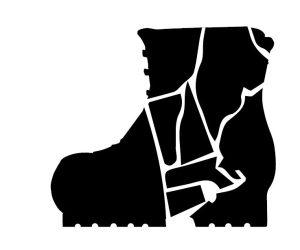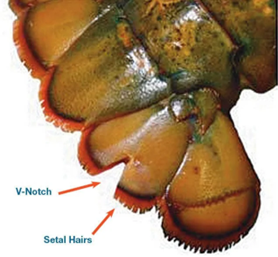Sep
27

Posted by Margot M on September 27th, 2024
Posted in: Funded Project
Tags: Boot Camp, climate change, science librarians
Part of a blog post series from New England Science Boot Camp for Librarians scholarship recipients.

Logo for New England Science Boot Camp for Librarians
Caroline Williams (Pratt Institute):
The New England Science Boot Camp for Librarians provided a captivating exploration into the industry and research of Fisheries Oceanography, offering insights into the dynamics of marine ecosystems. As a master’s student specializing in data analytics and visualization with a keen interest in climate data, the sessions on fisheries oceanography resonated deeply with my academic and professional pursuits.
The fisheries oceanography presentation covered the intersection of climate change, marine biodiversity, and sustainable fisheries management. The sessions highlighted the pivotal role of data-driven approaches in understanding and mitigating the impacts of environmental changes on fish populations and ocean health. Discussions centered around the integration of diverse datasets, showcasing how these tools contribute to informed decision-making in fisheries management.
The role of librarians in fisheries oceanography emerged as instrumental, bridging the gap between scientific research and practical applications. By curating and disseminating critical datasets on marine biodiversity and environmental factors, librarians facilitate informed decision-making among researchers, policymakers, and stakeholders.
The sessions highlighted the evolving landscape of fisheries oceanography. The importance of collaborative efforts across disciplines is needed to address challenges such as overfishing, habitat degradation, and the impacts of pollution on marine ecosystems.
As an information professional and future data analyst passionate about leveraging data for environmental stewardship, these insights from the New England Science Boot Camp for Librarians have deepened my understanding of the interconnectedness between climate data, fisheries management, and marine conservation. I am eager to apply these learnings in my academic journey and contribute to sustainable solutions that preserve our oceans for future generations.

Photo by Melanie Salvat
Melanie Salvat (Boston University)
As an aspiring Librarian with a background in STEM, it was an absolute pleasure to attend the New England Science Boot Camp for Librarians. The Fisheries Oceanography presentation resonated deeply with me, touching on ecology and conservation—my specialty! The speakers, Steve Cadrin and Gavin Fay, highlighted the various actions that fisheries are taking to prevent overfishing and preserve our seas for future generations, in collaboration with marine biologists.
In the 19th century, it was believed that with “our current means” (the technology of the era), overfishing was impossible. However, by the 20th century the concept of a “carrying capacity” was introduced, and fisheries began to acknowledge the limits of our ecosystems. Today, we know about ecological cascades, a series of secondary extinctions triggered by the primary extinction of a key species in an ecosystem and make great efforts to avoid them. Initially, conservation efforts focused on protecting the eggs of our oceans’ creatures, but lately the focus has shifted to safeguarding juvenile fish and ensuring they reach maturity. I also learned that in Boston, for example, fishermen cut “V”s into the tails of blue lobsters to indicate that they’re breeders, so that they are released if captured and allowed to continue to reproduce.
As a person of color, I appreciated that the speakers noted that listening to Indigenous peoples, who are stewards of the environment, is also crucial. Traditional fishing methods are sustainable and non-exploitative, as exemplified by Wampanoag fishing culture. Today, climate change is pushing fish populations northward, adding another layer of complexity to Fisheries & Oceanography sciences. One quote I will carry with me from this talk was “We can still live well in a changing climate if we prepare.”
Samantha Porter (Woods Hole Oceanographic Institute):
A highlight of this year’s Boot Camp for me was the trip to the UMass Dartmouth SMAST East campus in New Bedford for talks from Steve Cadrin and Gavin Fay on Fisheries Oceanography. Working in Woods Hole and supporting the scientific work being done here, this topic was of particular interest to me as there are many correlations between the work being done at SMAST and at the institutions my library supports. I do not have an educational background in the sciences, despite working in a science library, and I found both talks to be extremely approachable and informative.
In addition to a professional interest in this topic, I felt a personal connection to it as well. As a lifelong New Englander, the history of fisheries in New England and New Bedford that Steve covered was very compelling. My husband and I also enjoy recreational fishing off the coast of the Cape, so learning how decisions are made using an Ecosystem Based Management process in fisheries management from Gavin gave me a much greater appreciation for the care taken in managing our local fisheries.
I very much appreciated the time both Steve and Gavin took to highlight the role of libraries and librarians in their work. Libraries play a key role in supporting the interdisciplinary scholarship needed for the future of fisheries management. They are also key partners championing and stewarding the future of Open Science.
I am so grateful for the opportunity I had to learn from these two fantastic scientists. This session was a fantastic introduction to the topic of fisheries oceanography and had me ready to return to work the week following the conference with renewed energy to support the scientists at my home institution.